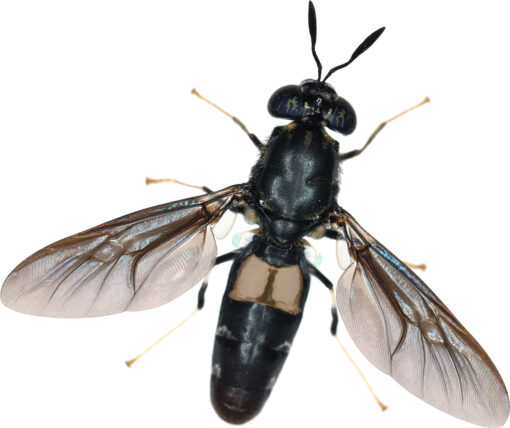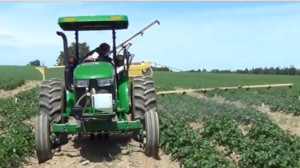Black Soldier Flies Help Pepper Grow Meadows. Brussels sprouts. Kale. Mustard. Lettuce and arugula. Now red chili peppers joined the list of plants benefiting from soil amendments derived from black soldier fly frass. It is likely that this list will continue to grow as research in this area expands. Sanjaya, Y., Surakusumah, W., Pratama, A.M. …Read More

ABOUT THE BLACK SOLDIER FLY
Black soldier fly, Hermetia illucens, is a common and ubiquitous fly species. It is widely spread throughout the world, although tends to prefer warmer areas. It has also been known to science for a long time, first described by Carl Linnaeus, the eighteenth-century scientist who is credited to be the father of modern taxonomy. Until recently, however, they were either ignored by most people as just another bug buzzing around outdoors or considered to be a nuisance pest infesting manure on animal farms. The situation began to change in 1990s, with the idea of harvesting their larvae and using them for animal feed increasingly gaining traction ever since.
Feeding maggots to poultry is not a particularly groundbreaking concept: farmers had their free-range chickens digging through compost piles for centuries. However, black soldier flies are very well suited for bringing this process up to an industrial scale.
They can consume a wide variety of wastes, have high bioconversion rates (which means that they eat a lot and grow fast and large), do not readily accumulate organic toxins from their feeds, are relatively easy to handle, and do not seem to succumb readily to infectious diseases. Larval bodies are rich in protein and fat; moreover, they can serve as a source of a valuable biopolymer called chitin and several biologically active compounds with potential applications in the pharmaceutical industry. Adult black soldier flies are fairly prolific even by insect standards, with a single female laying 800-900 eggs. Unlike some other flies, they are also not particularly bothersome to humans and other animals because they do not really need anything from them directly.
None of these characteristics are unique to black soldier flies. As insect farming goes mainstream, the number of domesticated waste recyclers will probably increase. Nonetheless, black soldier flies appear to have a combination of characteristics to become a species of choice for recycling organic wastes. Similarly, chickens are not the only domestic bird species; however, they have a suite of traits that make them the most popular one.










